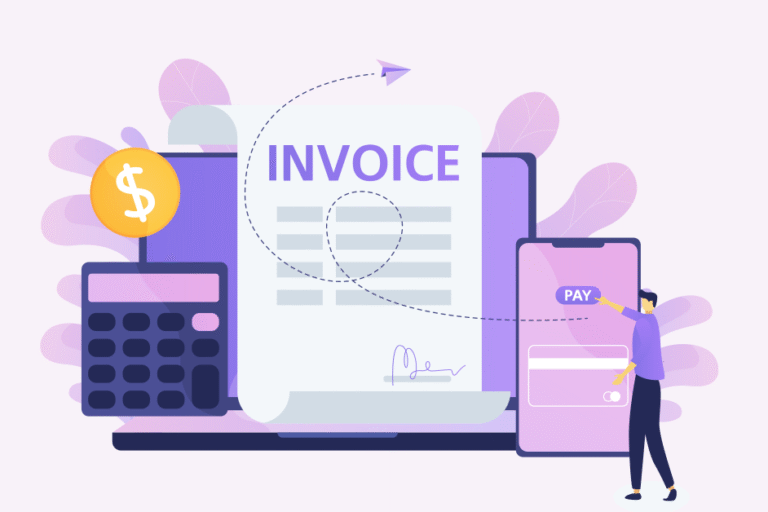
How Do Law Firms Keep Track of Billable Hours?
09/24/2025 By Clare Sheehan
Law firms typically use one of two methods to track billable time: manual logs or attorney time and billing software. According to the American Bar Association, roughly two-thirds of firms currently use time tracking software. For the typical law firm, timekeeping software is the most straightforward and efficient solution, particularly for small to mid-sized firms with limited staff.
Time and billing software provides an accurate method for tracking billable hours, which can easily be translated into invoices. The best software comes with built-in payment processing, creating another layer of security for your firm and its clients.
This is especially important for firms that often lack the time or resources to train staff. Below, we’ll go over a few of our best practices for tracking time, including how to use attorney timekeeping software and how to choose legal billing software for a small firm’s needs.
Using software doesn’t have to mean learning a new method or changing your operations; in fact, the right software can support and improve your current billing process.
What Are Effective Strategies for Managing Billable Hours?
Effective time tracking requires a focus on efficiency and accuracy. As your firm manages its billable hours, ensure that you follow these steps.
- Track in real time as much as possible. Rather than waiting until the end of the week or even the end of the day, it’s always best to log each billable task as it happens. This leaves less room for human error, which not only gives your clients more accurate invoices but also gives you a clear picture of the time spent on specific tasks.
- Don’t ignore small tasks. It’s tempting not to bother recording small increments of billable time, but 0.1 hours here and there add up quickly. Even if you did as little as six minutes of unpaid work each day, that adds up to 26 hours of unpaid work every year.
- Audit your week’s worked hours versus billed hours. Since your work requires a certain amount of unpaid labor, it’s good to know what portion of your day is spent on billable tasks. The more detailed you are with tracking specific tasks, the better you can find opportunities to improve your operations.
- Use shorthand descriptions or codes. The less time you spend recording billable hours, the more time you can spend on cases. You may already be doing this in the form of abbreviations. Legal timekeeping and billing software can further expedite this process.
TIP: Use Autotext Features and Save More Time
Bill4Time comes with an autotext feature that allows you to type abbreviations in time entries, which will automatically expand to their full text. You set it up once, and then any time you type an abbreviation, it fills in the full description. Let’s say you often write “had a telephone conference with client re: upcoming trial.” Instead of typing that every time, you could program the phrase “TCTrial” to fill it in automatically. You’ll still get a detailed invoice, but with less typing—and fewer mistakes.
How Do You Track Hours With Time and Billing Software for Lawyers?
Tracking time through software is relatively simple. Let’s run through the steps together, using Bill4Time to walk you through the process.
- Start a timer while you work. Bill4Time’s time tracking allows you to categorize timers by client, project, and activity, capturing as much detail as possible.
- Enter time manually if needed. On occasion, you may spend a short time on a task or simply forget to switch timers, so be sure that nothing falls through the cracks.
- Tie entries to the correct matters. Ensure that your time entries are properly organized and accurate. Some of this is already taken care of in Step 1, and Bill4Time’s project management features enable you to take it a step further. You can create detailed, granular breakdowns of billable time and expenses, even adding notes to help clients understand their invoices.
- Build your invoice. Thanks to Bill4Time’s ability to create invoice templates, this is already done for you.
- Collect your invoices. Legal software is designed to work with the complexities of legal billing, which often includes syncing up with trust accounting. Thanks to Bill4Times’ built-in payment processing, you’re able to collect payments from the same software you used in the last four steps. In short, everything can be done in one place!
Manual vs. Software for Tracking Time and Billing in the Legal Industry
The differences between manual time entry and software are far fewer than you might expect. Some attorneys consider using software as a completely different method from more traditional handwritten logs; however, software is not a method—it’s a resource. Rather than looking at a “pros and cons” list for handwritten logs vs. software logs, let’s look at how software might supplement an existing manual process. We’ll use the example of a solo practitioner who currently writes all their time entries by hand. This attorney—we’ll call him Kevin—has a system that works perfectly well without any software… So, is there any real reason he should use it?
Here’s What Kevin Gains With Software:
More Accurate Records When everything’s tracked in one system, there’s no need to copy anything from paper to Excel to an invoice. That means fewer mistakes. It also means less time fixing errors. Faster Billing and Collections Kevin doesn’t need a full-time bookkeeper. With software, he logs the time, creates the invoice, and sends it out the same day. Some programs even handle online payments, so money comes in faster, and no follow-up emails are needed. More Flexibility Kevin’s in court most of the day. He doesn’t always have time to sit down at a desk. With cloud software, he can pull up a timer on his phone while walking out of the courthouse.
Improve the Accuracy of Your Billing Process
If you’re already keeping good records, switching to software shouldn’t mean starting from scratch. It should back up what you’re already doing—and help you do it faster, with fewer errors. Think of it as having an assistant that doesn’t forget anything, doesn’t misplace time slips, and doesn’t leave you guessing at the end of the week. Here’s what software can do for you:
Faster Billing and Collections
The fewer opportunities for mistakes, the quicker the invoicing process, and the faster you get paid. Software like Bill4Time has a payment processor, which removes more hurdles from the collections process. This speeds up the cash flow of your practice, meaning you need fewer clients at a time to keep things running. That leaves room for growing your practice or spending more time with the clients on your caseload.
Convenience and Easy Adoption
Another way to improve the efficiency and accuracy of your billing process is to make it as no-frills and straightforward as possible. Time tracking and billing software for lawyers is a quick way to streamline the billing process with a minimal learning curve. And thanks to mobile-friendly software, you’re able to turn your smartphone into a logbook, spreadsheet, and invoice generator—no computer required! As of 2024, nearly 85 percent of solo lawyers are using some kind of cloud-based software, according to the American Bar Association—and for good reason. With cloud-based software, you don’t need to be in a specific place to log time, edit invoices, or collect payments. Whether you’re in the office, a courtroom, or out meeting with a client, you can access your billing data in one secure, easy-to-access place.
Want To Learn More About Attorney Timekeeping Software?
Recording your time accurately means you’re respecting your work and providing clients with clarity on what they’re paying for. Whether you’re managing a solo practice or working in a midsize firm, having a reliable process makes a real difference. But no matter what you choose, the right system should support the way you practice, not the other way around. Don’t hesitate to contact us with any questions you may have. We also invite you to try Bill4Time for free.



